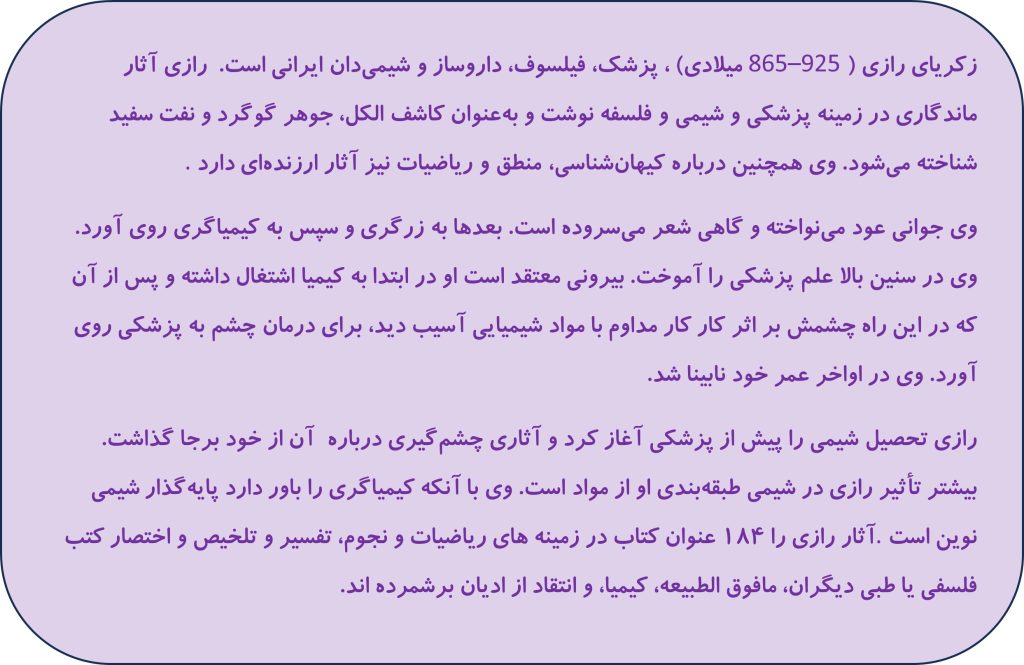Contemporary Scholars
Shirin Eba:di – Nobel Peace Prize winner
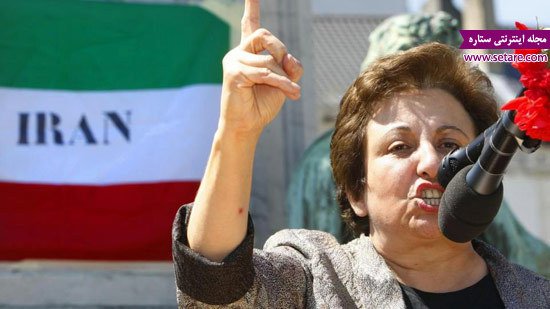
Shirin Ebadi (born 1947) is an author, lawyer, and the first female judge and president of a court in Iran, who has been living in exile in London since 2009. Ebadi received the Nobel Peace Prize in 2003.
Professor Ebadi served as a judge in Iran until 1980, but was removed from her position after the Islamic Revolution due to her gender. In 2002, she founded the Center for Human Rights Defenders (DHRC) to assist those promoting democracy, and she has continued to lead it since. In 2008, the Iranian government raided the office of this center, which at the time employed 30 lawyers, and shut it down. However, Shirin continued her activities and was pursued by authorities in 2009. All her assets, including the office she had purchased for the DHRC, her personal home, and her law office, were confiscated, prompting her to emigrate from Iran, where she now resides in London.
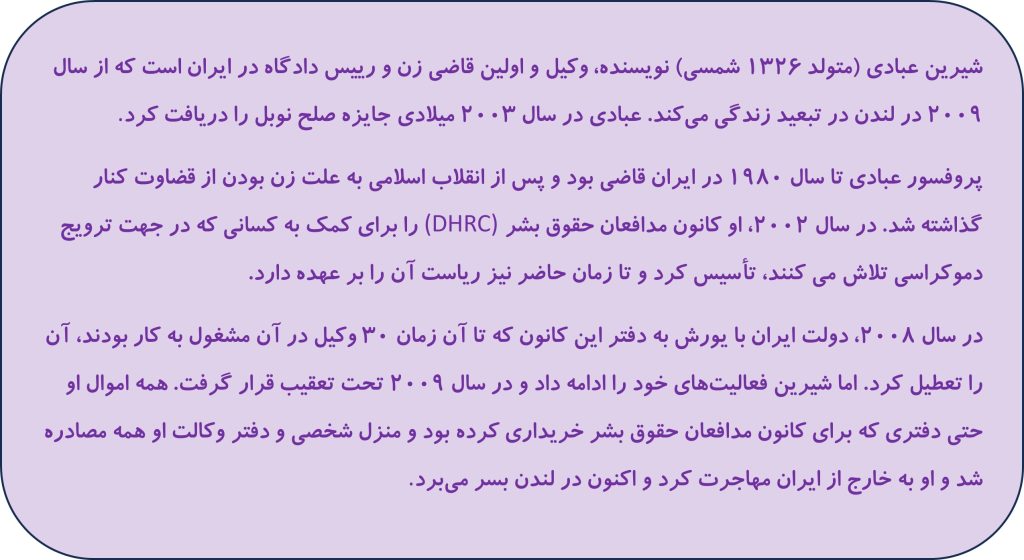
Narges Mohamadi – Nobel Peace Prize winner
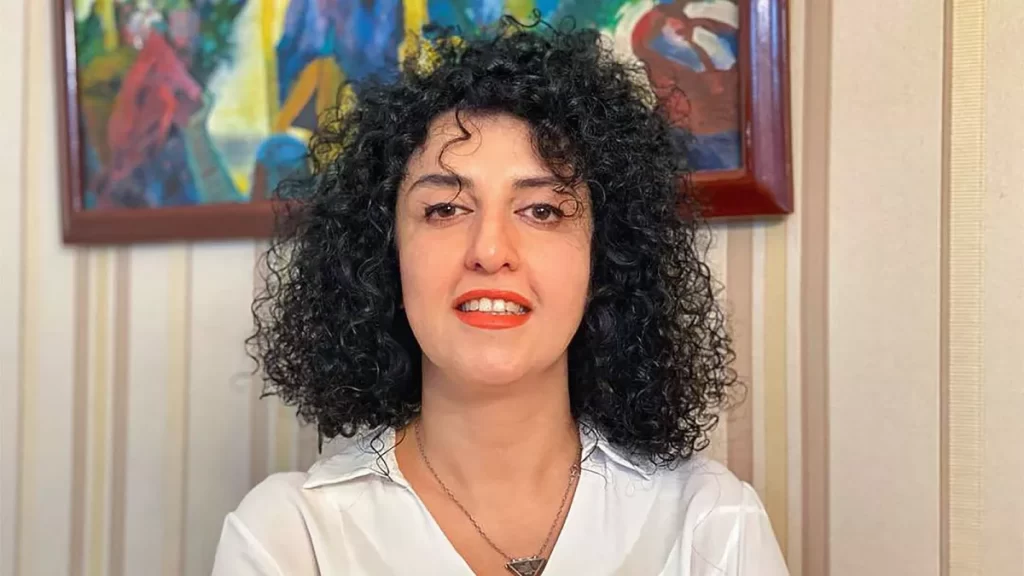
Narges Mohammadi (born 1972) is an applied physics graduate, human rights activist, Iranian political prisoner, and Nobel Peace Prize winner in 2023. She is a former member of the Supreme Policy Council of the Reformist Unity and serves as the vice president and spokesperson for the Center for Human Rights Defenders. Narges is an opponent of the Islamic Republic regime. She was arrested in the late 1990s, but her detention gained attention in early 2010. Over the past two decades, she has been arrested at least five times and was sentenced to 16 years in prison in her most recent trial. Her husband, Taghi Rahmani, is also a political activist who has spent more than 14 years in prison.
In 2023, the Norwegian Nobel Committee awarded the Nobel Peace Prize to Narges, recognizing her as a “natural leader” of the Woman, Life, Freedom movement that emerged in September 2022. The prize was awarded for her leadership of these protests and her courageous fight for freedom and human rights over three decades. In 2024, her name was included in Time magazine’s list of the 100 most influential people.
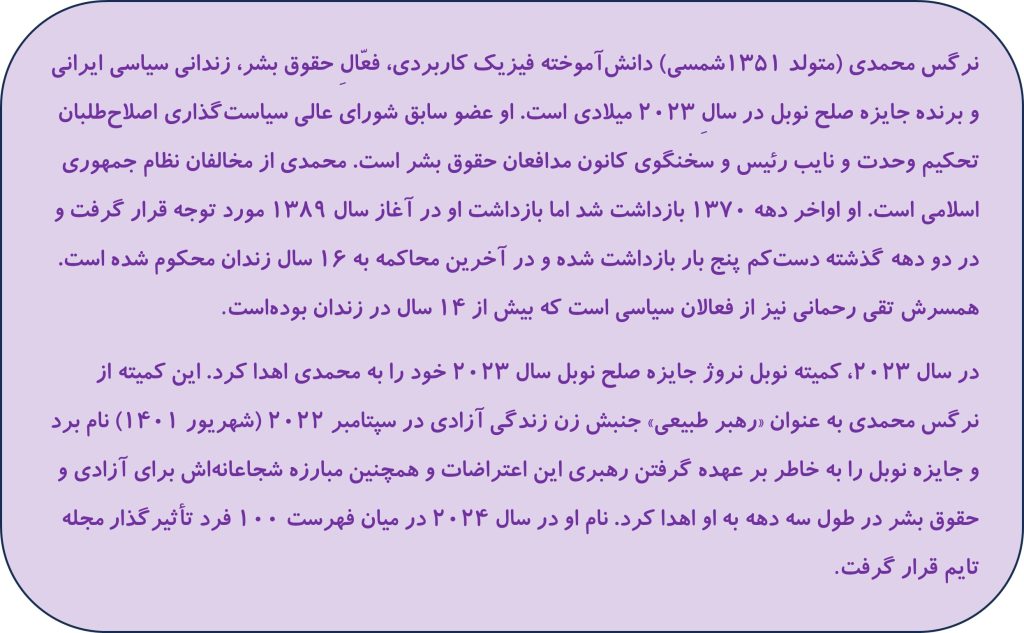
Maryam Mirza:kha:ni – Fields Medal winner
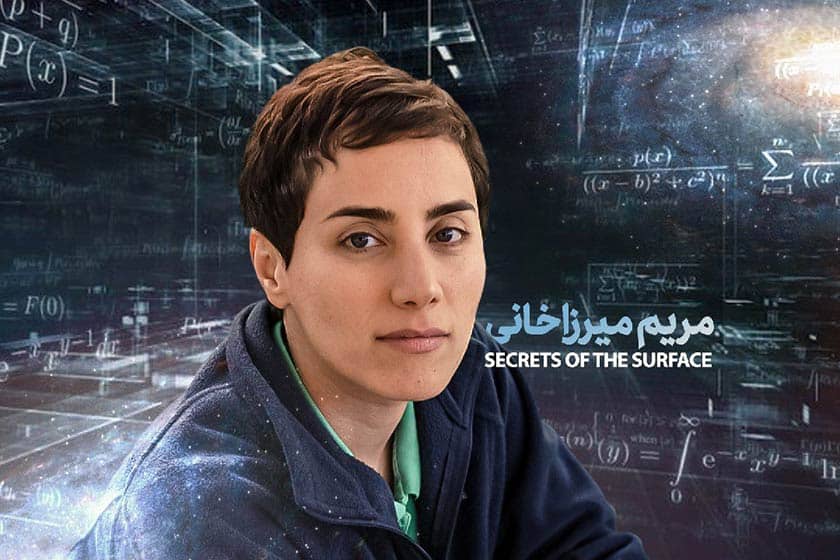
Maryam Mirzakhani (1977 – 2017) was an Iranian mathematician and a professor at Stanford University. In 2014, she won the Fields Medal, the highest award in mathematics, for her work in the dynamics and geometry of Riemann surfaces and their moduli spaces. She was the first woman to receive the Fields Medal. Her research areas included Teichmüller theory, hyperbolic geometry, ergodic theory, and symplectic geometry.
Maryam completed her undergraduate studies at Sharif University of Technology in Tehran and earned her Ph.D. from Harvard University in 2004. After obtaining her doctorate, she joined Princeton University as an assistant professor. Two years later, in 2006, Popular Science magazine named her one of the 10 young minds in the world. Maryam remained at Princeton until 2008, during which time she was promoted to full professor. She then moved to Stanford, where she worked as a full professor at the age of 31.
Maryam passed away in 2017 at the age of 40 due to cancer. Her birthday, May 12 (22 Ordibehesht), has been designated by the International Mathematical Union as the International Day for Women in Mathematics.
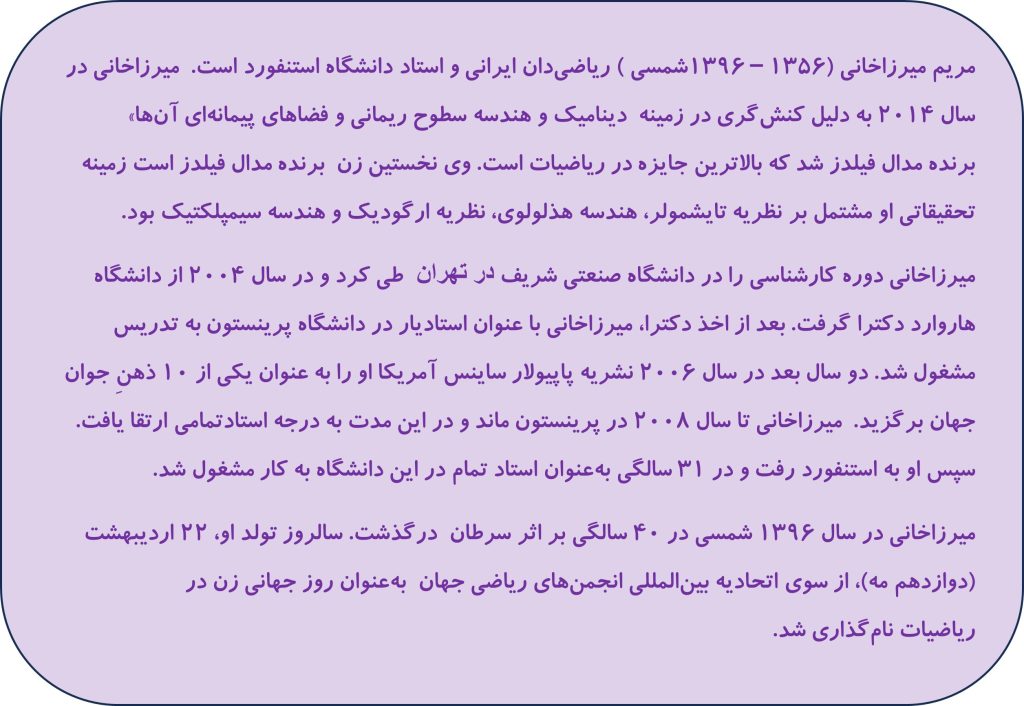
Firooz Na:deri – NASA Scientist

Firooz Naderi (1946 – 2023) was an Iranian scientist who spent 36 years in various technical and executive positions at NASA’s Jet Propulsion Laboratory (JPL). He participated in many American space robotics projects at the laboratory and also served as the director of NASA’s Solar System Exploration.
Firooz worked as the Mars Program Manager for five years, successfully overseeing space explorers like Spirit, Rovers, and Opportunity. Due to his managerial skills, he received NASA’s highest award, the “NASA Distinguished Leadership Medal.”
Over the years, he established the JPL Innovation Factory, raising over $100 million for the identification and development of new technologies within six years. In 2016, at his retirement ceremony, NASA held a celebration in his honor, naming an asteroid “Naderi 5515” after him. This asteroid was discovered in 1989 by Eleanor F. He passed away on June 9, 2023.
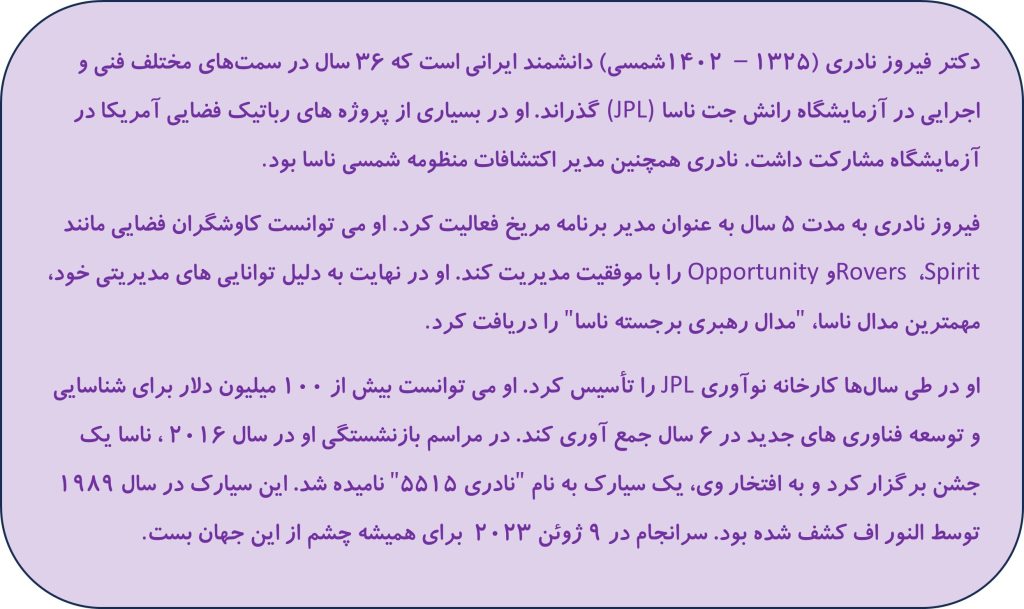
Ancient Scholars
Avicenna (Ibn Sina:) – Physician
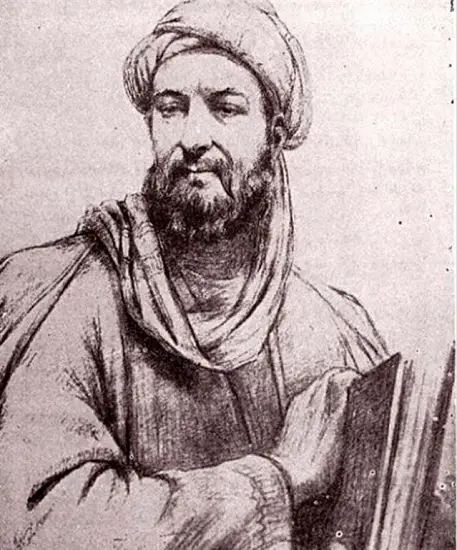
Avicenna (Ibn Sina) (980-1037) was an Iranian physician, mathematician, astronomer, poet, philosopher, and musician. He authored 450 books in various fields, many of which focus on medicine and philosophy. His major works include two comprehensive scientific and philosophical encyclopedias, “The Book of Healing” and “The Alai Encyclopedia,” as well as “The Canon of Medicine,” one of the most renowned texts in the history of medicine.
Avicenna founded an observatory in Isfahan, where he regularly studied celestial bodies. His studies and observations resulted in astronomical calendars or tables indicating the daily positions of planets in relation to the sun’s orbit.
Many of Avicenna’s works, particularly in medicine, were taught in European universities for centuries. “The Canon” was taught in European scientific centers for nearly seven hundred years and overshadowed many other texts in the field. Even today, it is taught as an important part of ancient medicine in some centers and universities around the world.
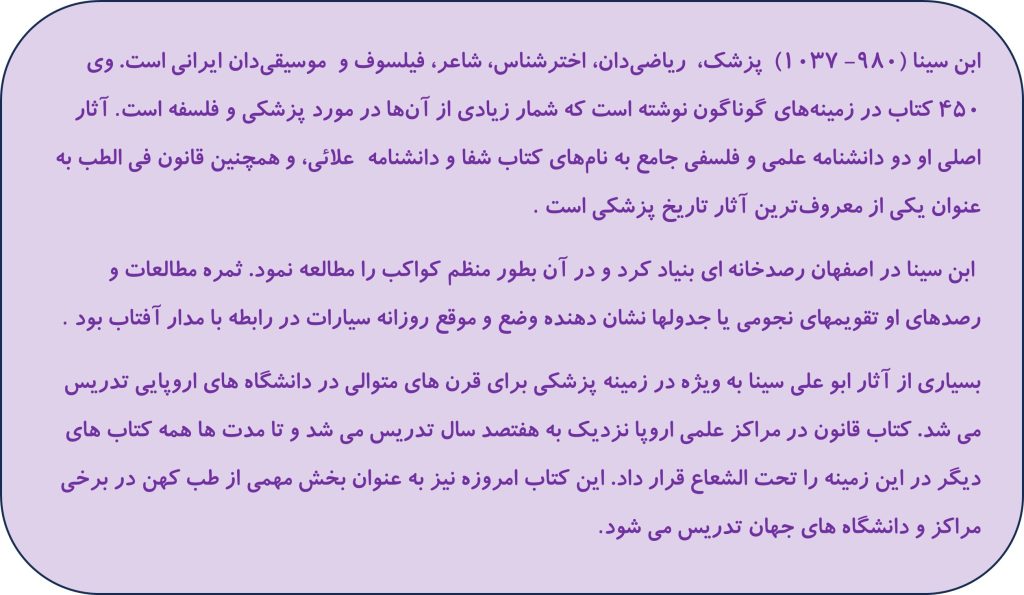
Zakariya: Ra:zi – Physician and Alchemist
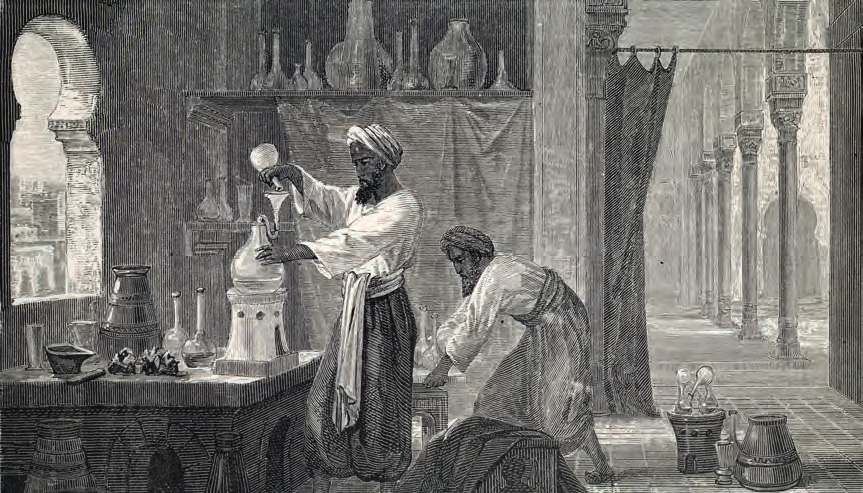
Zakarīyā al-Rāzī (865–925 CE) was an Iranian physician, philosopher, pharmacist, and chemist. He wrote enduring works in the fields of medicine, chemistry, and philosophy and is recognized as the discoverer of alcohol, sulfuric acid, and kerosene. He also made significant contributions to cosmology, logic, and mathematics.
In his youth, he played the oud and occasionally wrote poetry. He later turned to goldsmithing and then to alchemy. He learned medicine at an older age. Biruni noted that he initially engaged in alchemy, and after damaging his eyesight from continuous work with chemicals, he turned to medicine for treatment. He became blind in his later years.
Razi began his studies in chemistry before medicine, leaving behind remarkable contributions in that field. His most significant impact in chemistry is his classification of substances. Although he believed in alchemy, he is considered a pioneer of modern chemistry.
Razi’s works include 184 titles in mathematics and astronomy, interpretations, and summaries of the philosophical or medical texts of others, metaphysics, alchemy, and critiques of religions.
